13+ Sample Procurement Contracts
-
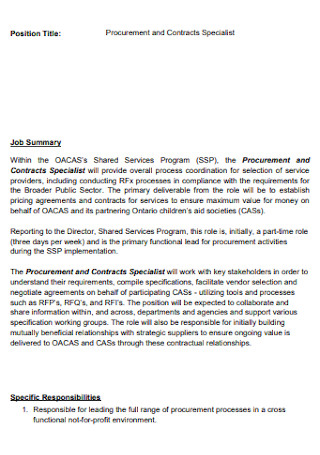
Procurement and Contracts Specialist
download now -
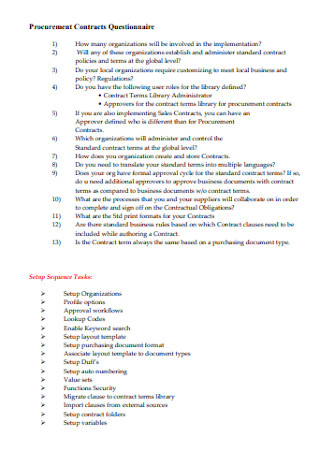
Procurement Contracts Questionnaire
download now -
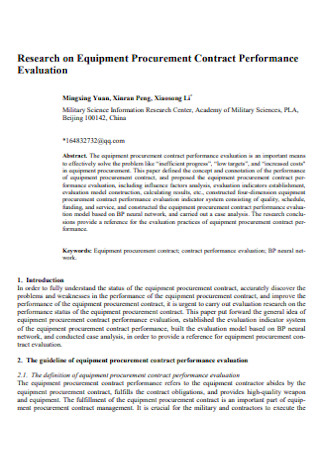
Research on Equipment Procurement Contract
download now -
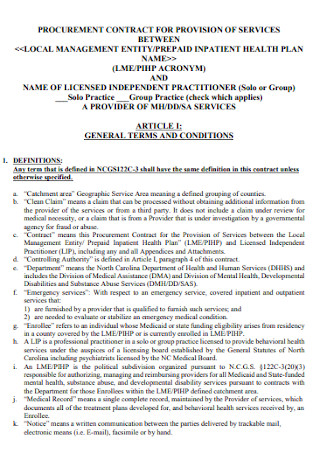
Procurment Contract for Provision Services
download now -
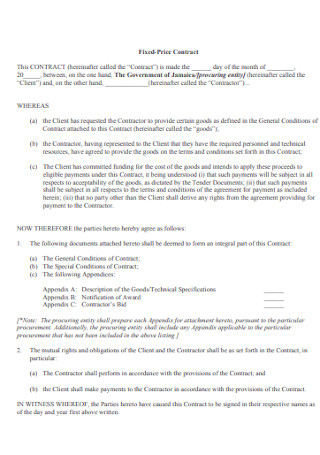
Food Price Procurment Contract
download now -
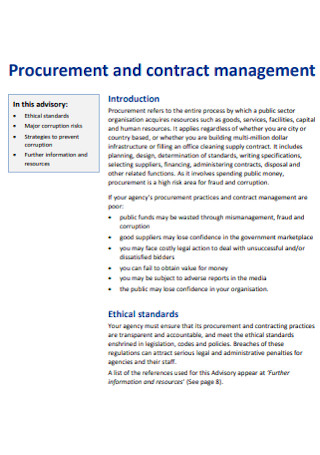
Procurement and Contract Management Template
download now -
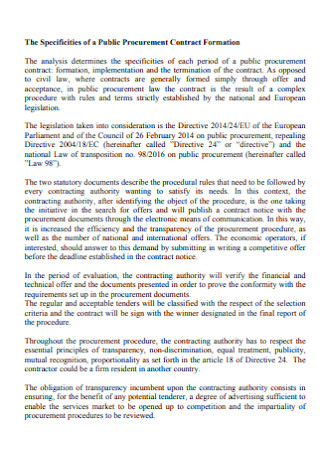
Public Procurement Contract
download now -
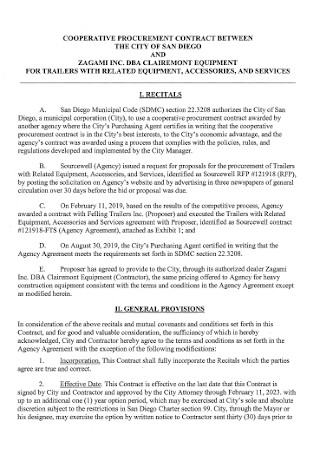
Cooperative Procurement Contract
download now -
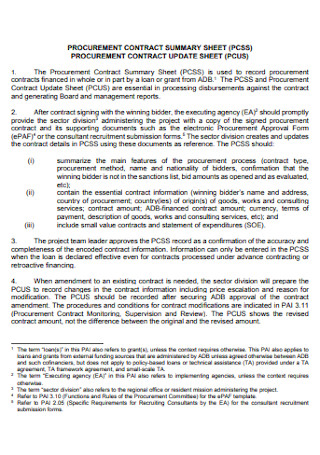
Procurment Contract Update Sheet
download now -
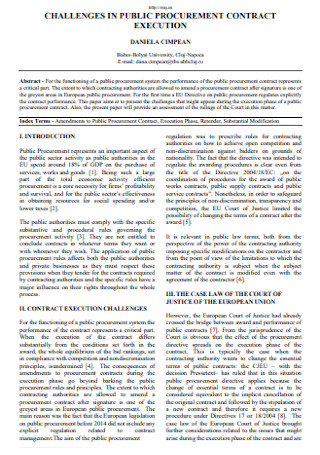
Challenges in Public Procurement Contract
download now -
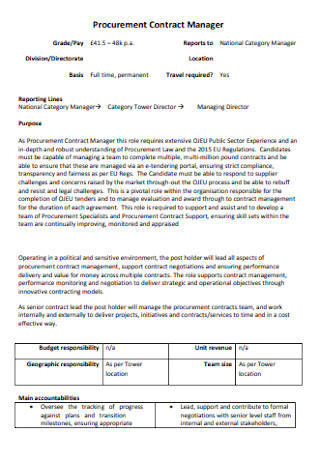
Procurement Contract Manager Template
download now -
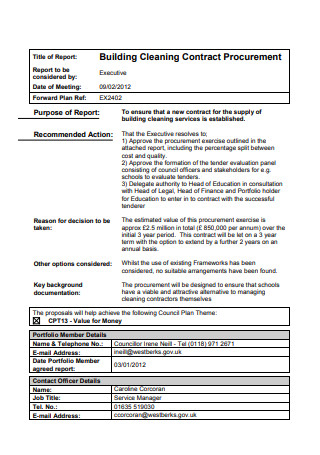
Building Cleaning Contract Procurement
download now -
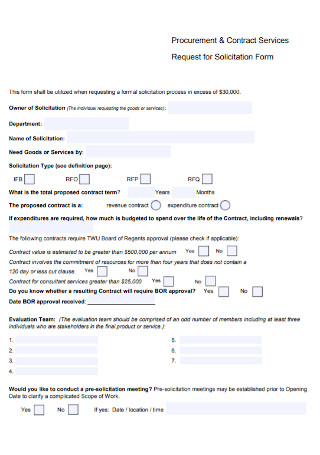
Procurement Contract Form
download now -
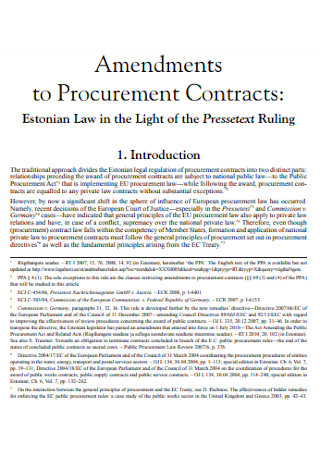
Amendments to Procurement Contract
download now
FREE Procurement Contract s to Download
13+ Sample Procurement Contracts
What is a Procurement Contract?
Defining What Procurement Means
Why Do You Need a Procurement Contract?
Different Types of Procurement Contract
Important Elements in Your Procurement Contract
FAQs
What do Procurement Contracts Look For?
What are 3 Types of Procurement Contracts?
What is Procurement Contract Management?
These purchases involve money and when money is involved, a contract is a must. For this type of transaction, a Procurement Contract shall take place and this article will discuss more about just that. Read below to learn more about what a Procurement Contract is, the different types it takes shape in and some important elements that you must be on the lookout for when drafting one or when you are handed one. You can also duplicate the samples we have prepared and customize it to best fit your transaction!
What is a Procurement Contract?
A Procurement Contract, oftentimes referred to as the Purchase Contract, is any legally binding agreement between a buyer and a seller that states both parties’ obligations in the purchasing transaction that endeavors to protect both parties throughout the duration of the procurement process. It is essentially the legal document that proves a relationship between the buyer and the vendor exists and that the terms and conditions through which the purchasing of materials, supplies, services with their desired delivery dates that all of which are necessary for the business to continue to operate, have been negotiated and mutually agreed upon by the parties involved. Lastly, an effective Procurement Contract can positively impact the business’ profit margin and increase the business’ profitability since the procurement cost of acquiring the goods and services are less than the amount that they are sold for.
A Procurement Contract generally includes the items to be purchased, the services sought for, the price lists that reflect the amount that the goods and services cost, and transaction costs, delivery time, method of payment, opportunities for discounts, etc.
Defining What Procurement Means
Procurement is the process of acquiring or sourcing a set of goods or services from a third party vendor or supplier that is most typically associated and intended for business purposes, especially large-scale organizations that need to resort to solicit services and purchasing goods in bulk or in sizes just as massive as the company in order to complete their products. While it can be used interchangeably as both terms share similarities in semantics, they still have different meanings when contextualized in business agreements. A key difference is that procurements generally entail a thorough and complex process that involves a lot of smart and strategic decisions with tedious bargaining with the vendor or suppliers to ensure that the goods and services to be received are the best there is in quality that come with the most affordable prices. Purchasing, on the other hand, is defined as a set of tasks involved in obtaining the goods and services. It can function as part of the procurement process with tasks involving the ordering and receiving of the goods and services and the arranging of the price rates and the payment methods. The purchasing aspect of the procurement process is generally associated with the numbers while procurement encompasses the whole process of acquiring the goods and services from determining its quality all the way to their value and ensuring a long-term relationship with the supplier through a set of tactical methods.
Why Do You Need a Procurement Contract?
Aside from a Procurement Contract documenting the procurement process to ensure that contractual obligations are observed and compiled, there are more benefits of preparing a well-written Procurement Contract. Some of them are detailed below:
1. It strengthens the relationship between a buyer and a seller.
As stated beforehand, a Procurement Contract protects both the buyer, in most cases business owners, and the seller involved in the transaction. This is because the contract clearly defines the framework that the relationship of both parties will follow and having a structure to adhere to will allow for trust and reliance on the other to flourish out of it which are integral values needed since money is involved in these processes and when the talk of money arises, it is only expected that one should enforce protective guidelines and avoid the incurrence of a financial loss or contract disputes. Moreover, if both parties are able to trust and rely on each other, this can result in a strengthened business relationship that can pave the way for current future collaborations to work seamlessly with probable chances of being offered the best deals that can maximize profit more efficiently on the organization’s end and mutual benefits that both parties can enjoy.
2. It improves efficiency.
Contracts in general and especially in the arena of business are prepared not only as a safety net but also because it aims to abide by a process that will improve the efficiency of the business operations. The procurement department are able to strategize a method that works to the best of the business’ interests in the sense that they can acquire procurement deals that can cost less and draft modes of deliveries and plot the best time for delivery arrivals all the while managing potential risks and surprises from having been able to apply a thorough risk analysis. Meticulous decision-making skills employed in the preparation of procurement contracts are bound to benefit the whole team, one of which is meeting projects or business deadlines. This can also in turn, satisfy the seller and encourage their cooperation and prompt response to the organization’s needs that ultimately could result in future collaborations together.
3. It establishes expectations.
Having documented the quality of the materials to be purchased, their corresponding prices and their expected arrival, the business can be more precise with the expectations they can set and can move forward to make and implement more decisions. The business can also be able to manage their finances better with an accurate estimate of the costs for the whole procurement transaction. Additionally, the business operations can produce an assessment based on the procurement planning and should there be objectives in the contracts that need to be improved to extract a better evaluation especially if it is in relation to money and the whole team’s performance, it can be remedied and amended in future contracts.
4. It measures performance.
With deadlines and objectives to meet, securing a Procurement Contract can allow for performance in reaching these to be objectively measured. Performances can also be properly assessed especially when there are key indicators that can benchmark the progress being made. Consequently, this can encourage performance improvement in the operations and administer more measurable guidelines that ultimately can benefit the organization at the same time monitor underperformance that can be penalized accordingly.
Different Types of Procurement Contract
We list and define down below the various types of Procurement Contracts most commonly employed by procurement departments in project management for you to have a better understanding of their nature and to determine which contract is best suited for your circumstance. Because money will be involved to improve efficiency, you want to select the type of contract that can best accomplish these goals all the while not being too costly and at the same time protects you from risks.
1. Fixed Price Procurement Contract
This type of contract is defined as a written legal document between the business and the vendor or supplier providing the goods or services that is used when the scope of work is fixed. Also termed as a Lump-Sum Contract, this offers a predictable cost that is more focused on the supplier fulfilling the contractual obligations rather than the buyer. They are legally bound to complete the tasks agreed upon in the contract allotted within the time frame and under the established price that must also be detailed in the contract. This is why the burden falls more on the seller especially since there is no room for a price renegotiation. Should there be unforeseen problems that a seller is to encounter for example, an increase in the price rates and costs, they are to take accountability for, with remedial actions that are usually very expensive but will bode well for the business as they are able to generate additional revenue from it. This is why this type of contract is the simplest to manage and is the go-to contract for experienced contractors who can use its nature to their advantage. A Fixed Price Procurement Contract is further divided into three categories:
2. Cost Reimbursable Contract
A Cost Reimbursable Contract otherwise known as either a Cost Plus Contract or a Cost Disbursable Contract, states that a seller will be appropriately reimbursed with the full costs accumulated by the contractor within the period of work plus a supplementary fee or financial incentives on top of the material costs that must also be indicated in the contract. In contrast to Fixed Price Contract, the scope of work is not as extensively defined meaning potential risks may double in number and higher in stake. There are four types of Cost-Reimbursable Contracts:
3. Time and Materials Contract (T&M Contract)
This contract can be a mixture of both the Fixed Price and Cost Reimbursable Contracts. The risks are fairly shared by both parties and this is mostly employed on miniscule-scale projects. The set-up under this contract is that the client is to reimburse the contractor for the material costs incurred throughout the project and the staff or the external support provided will be paid a rate for the time, usually hourly or daily, they spent on the job. Because the payment rate is based on a fixed rate, performance can be overlooked so regardless of the performance, payments are consistent although this should not encourage slacking or underperformance.
Important Elements in Your Procurement Contract
Your Procurement Contract should be able to disclose information on five important elements and they are as follows:
FAQs
What do Procurement Contracts Look For?
According to a blog written by Shelly Lu for Contract Works, most procurement contracts include five key contract management and procurement terms:
- Goods and Services
- Prices and Payment
- Confidentiality and Proprietary Information
- Limitation of Liability
- Breaches and Remediation
What are 3 Types of Procurement Contracts?
The most common types of Procurement Contracts are:
- Fixed-Price Contracts (Fixed Firm Price, Fixed Price Incentive Fee, Fixed Price with Economic Price Adjustment)
- Cost-Plus Contracts (Cost Plus Fixed Fee, Cost Plus Incentive Fee, Cost Plus Award Contract, Cost Plus Percentage of Cost)
- Time and Materials Contracts
What is Procurement Contract Management?
Procurement Contract Management is the managing of contracts to ensure cohesiveness is maintained in the legal documents and that there is proper organization as these are contracts that prove your relationships your businesses have with vendors and suppliers and whose transactions with you want to keep a record of.
